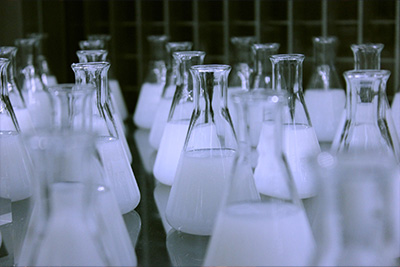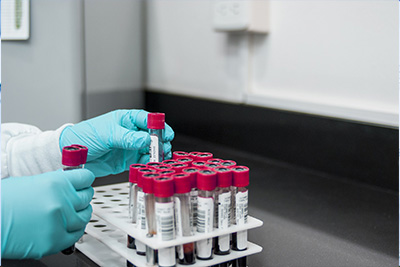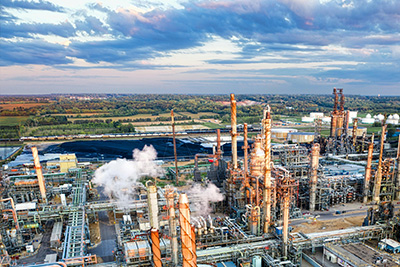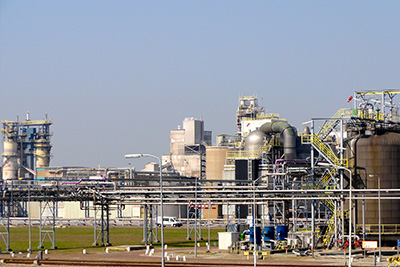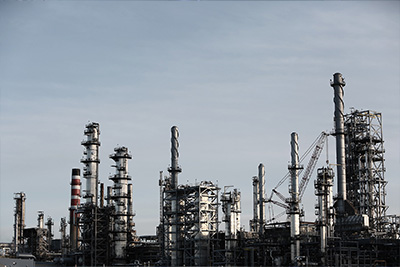-
![Environmental Impa···]() 2024-11-09 Environmental Impact Assessment of M···
2024-11-09 Environmental Impact Assessment of M···The environmental impact assessment of methyltin mercaptide covers its degradation processes, bioaccumulation potential, and mitigation strategies. This assessment highlights the compound's persistence in the environment and its tendency to accumulate in living organisms, posing risks to ecosystems and human health. Effective mitigation measures include advanced wastewater treatment techniques and stricter regulatory controls to minimize releases into the environment. The study underscores the need for comprehensive management plans to address the adverse effects of methyltin mercaptide on ecological balance and public safety.
read more > -
![Comparative Analys···]() 2024-11-08 Comparative Analysis of Methyltin Me···
2024-11-08 Comparative Analysis of Methyltin Me···This study conducts a comparative analysis of methyltin mercaptides and other organotin compounds in the context of polymer stabilization. It evaluates their efficacy, environmental impact, and toxicity profiles. The findings reveal that while methyltin mercaptides offer superior stabilization effects, they also exhibit higher toxicity compared to other organotin compounds. This research provides insights into balancing performance and safety in the selection of stabilizers for polymeric materials.
read more > -
![The Role of Methyl···]() 2024-11-08 The Role of Methyltin Mercaptide as ···
2024-11-08 The Role of Methyltin Mercaptide as ···Methyltin mercaptides serve as crucial heat stabilizers in polyvinyl chloride (PVC) manufacturing, enhancing the material's thermal stability during processing. This study explores the mechanisms through which these compounds stabilize PVC, focusing on their interaction with unstable chlorine atoms and their ability to form stable complexes. The efficiency evaluation reveals that methyltin mercaptides effectively prevent degradation, maintaining the mechanical properties and color stability of PVC over prolonged exposure to high temperatures. The findings highlight the importance of these stabilizers in extending the service life and broadening the application range of PVC products.
read more > -
![Mercaptide Tin’s I···]() 2024-11-08 Mercaptide Tin’s Influence on PVC He···
2024-11-08 Mercaptide Tin’s Influence on PVC He···This article explores the advancements in the production and application of mercaptide tin, focusing on its significant impact on enhancing the heat stability of polyvinyl chloride (PVC). The study highlights new methods for synthesizing mercaptide tin compounds, which act as efficient heat stabilizers. These advancements contribute to improved performance and durability of PVC materials, particularly in high-temperature environments. The research also discusses the broader implications for industrial applications, emphasizing potential environmental benefits and cost-effectiveness.
read more > -
![Butyltin Compounds···]() 2024-11-08 Butyltin Compounds in Industrial PVC···
2024-11-08 Butyltin Compounds in Industrial PVC···Butyltin compounds, widely used as stabilizers in industrial polyvinyl chloride (PVC) production, have garnered attention due to their effectiveness and environmental concerns. This article explores the current market trends, highlighting the increasing demand for eco-friendly alternatives amid regulatory pressures. Technical insights into the application and efficiency of butyltin stabilizers are provided, along with an analysis of their impact on product quality and processing characteristics. The study also discusses potential substitutes and future research directions to address environmental and health issues while maintaining industrial standards.
read more > -
![The Role of Octylt···]() 2024-11-08 The Role of Octyltin Compounds in Su···
2024-11-08 The Role of Octyltin Compounds in Su···Octyltin compounds have emerged as significant additives in the stabilization of polymers, contributing to sustainable materials development. These organotin derivatives enhance polymer stability against thermal degradation and oxidative stress, extending material lifespan and performance. Their efficacy in preventing polymer chain scission and cross-linking makes them valuable for various applications, from packaging to construction materials. However, environmental concerns over toxicity necessitate careful evaluation and development of safer alternatives. This underscores the importance of balancing functional benefits with ecological responsibility in polymer stabilization strategies.
read more > -
![Enhancing Efficien···]() 2024-11-08 Enhancing Efficiency in Methyltin Pr···
2024-11-08 Enhancing Efficiency in Methyltin Pr···This article explores innovative technologies and best practices to enhance the efficiency of methyltin production. It highlights advancements in catalytic processes, optimization of reaction conditions, and improved purification methods that significantly increase yield and purity. Additionally, the text emphasizes the importance of sustainable practices and safety measures to ensure environmentally friendly and secure manufacturing processes. These strategies collectively contribute to more efficient and cost-effective methyltin production.
read more > -
![Dimethyltin in PVC···]() 2024-11-08 Dimethyltin in PVC Applications: Pro···
2024-11-08 Dimethyltin in PVC Applications: Pro···Dimethyltin compounds are widely used as heat stabilizers in polyvinyl chloride (PVC) production due to their efficiency and cost-effectiveness. This article reviews various production techniques for dimethyltin stabilizers, highlighting the importance of precise control over reaction conditions to ensure optimal product quality. It also discusses industry standards and regulations governing the use of these compounds, emphasizing safety and environmental considerations. The aim is to provide a comprehensive understanding of the current state of dimethyltin applications in PVC manufacturing, ensuring compliance with international standards while optimizing product performance.
read more > -
![Mercaptide Tin Com···]() 2024-11-08 Mercaptide Tin Compounds: Industrial···
2024-11-08 Mercaptide Tin Compounds: Industrial···Mercaptide tin compounds are emerging with significant industrial production techniques and promising market opportunities. These compounds are synthesized through efficient reaction processes, ensuring high purity and stability. Key production methods include direct reaction of tin salts with thiols and advanced catalytic processes. The market is witnessing growing demand across various sectors such as coatings, adhesives, and agrochemicals due to their superior properties like enhanced durability and reduced environmental impact. This trend presents substantial business prospects for manufacturers and innovators in the chemical industry.
read more >


